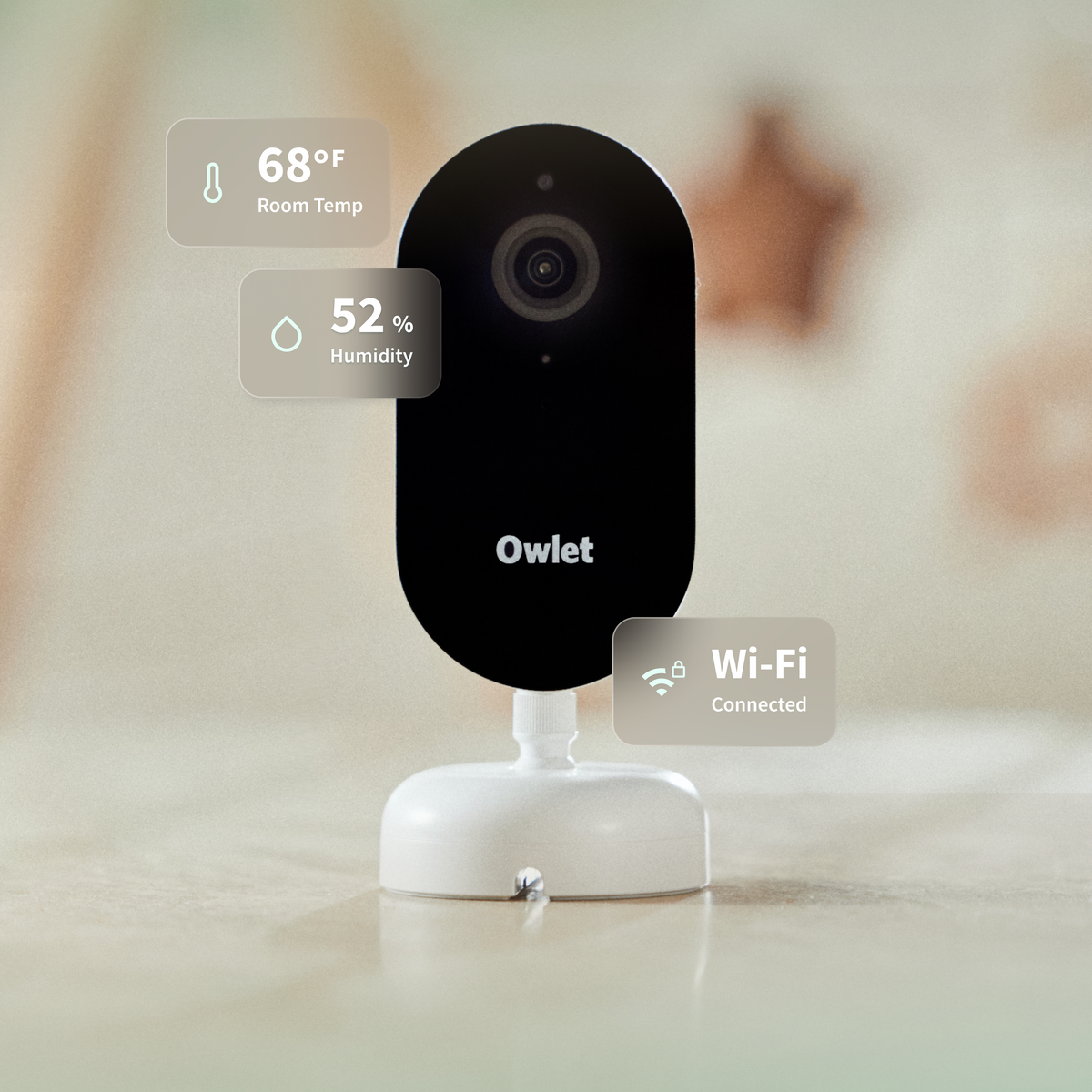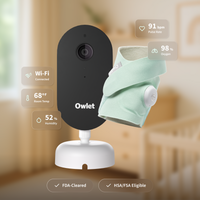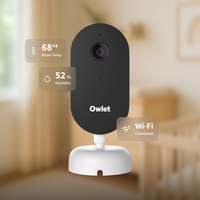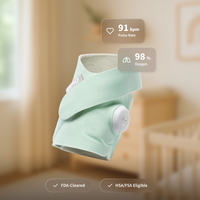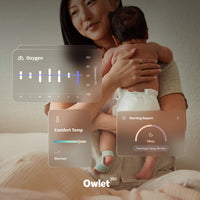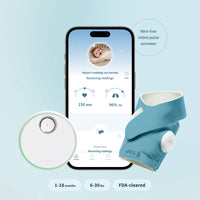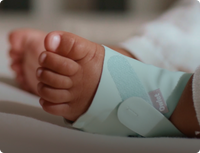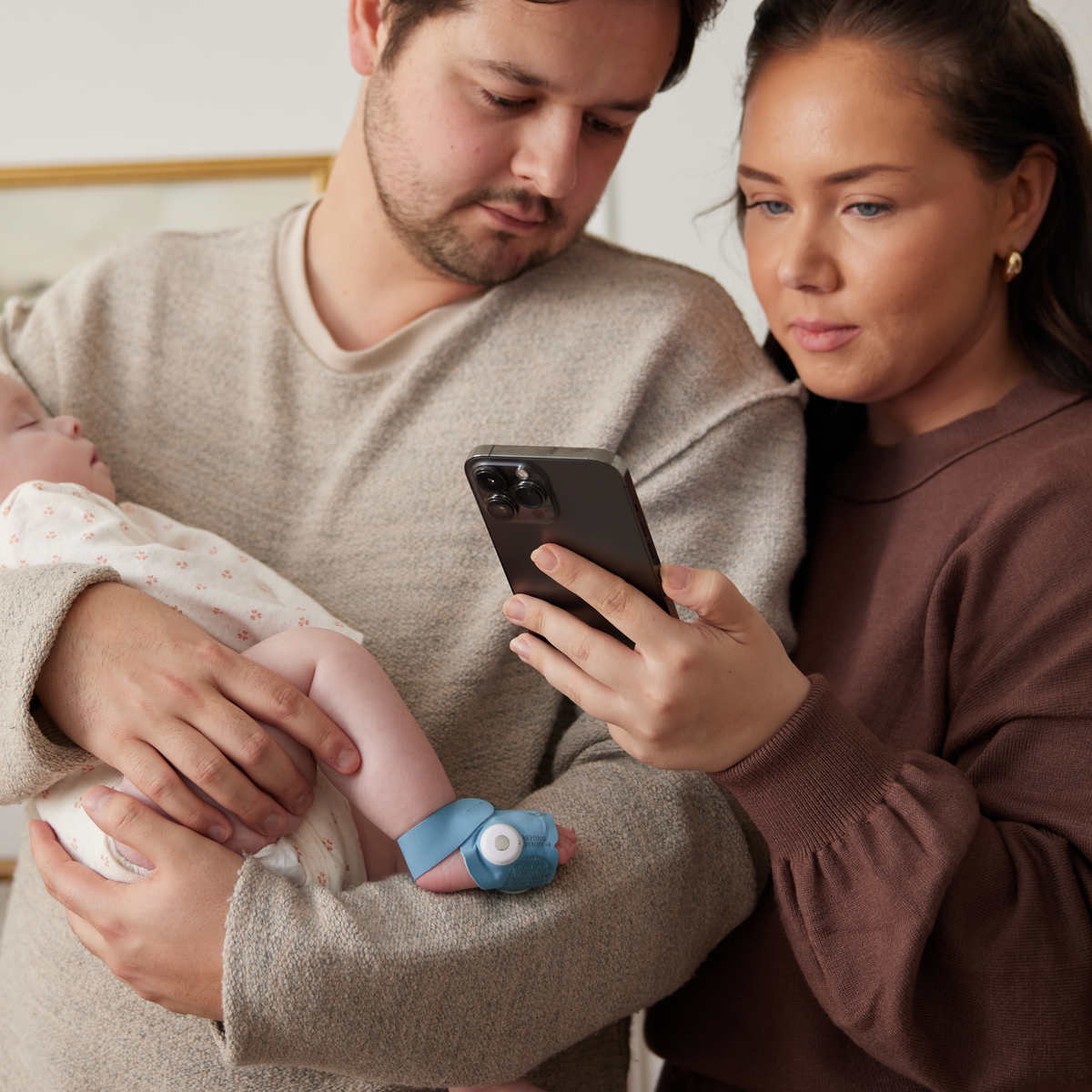A Letter from Dr. Carmel Harrington

The quotes, stories, and experiences included here are those of the individuals and are not representative of Owlet's views or claims about our product. Individuals were not paid and did not submit their information as part of any paid promotion by Owlet.
By: Dr. Carmel Harrington
The love that has underpinned each one of these donations brings both joy and sadness to my heart. Joy, because I know it is because of your generosity and love that one day we will beat SIDS, and sadness, because I too know the grief that many of you who have donated experience daily.
Thirty one years ago, my precious young son, Damien, went to sleep one night and never woke up. It was three days before his second birthday. Damien had a twin sister, Charlotte, and an older brother, Alexander. Our family was bereft.
After thorough investigation, no cause of death could be determined. He was yet another child that had died suddenly and unexpectedly in childhood, from no known cause.
Sudden Unexpected Infant Death (SUID), which includes SIDS, claims the lives of more than 3,000 babies each year in the U.S. alone.* No parent, grandparent or sibling should ever have to walk the path that we SIDS families have had to endure. It is no one person’s problem - this is a community problem. So it is as a community, standing shoulder to shoulder, that we are working towards finding a solution.
In 2022, my team and I were able to identify, prior to death, a biochemical marker that differentiates SIDS babies. We now know that infants that go on to die from SIDS are low in these enzymes which infers that their arousal system may not be 100% efficient.
I am truly excited by the future possibilities of this research. When I started this journey I was told that trying to find the cause of SIDS was like finding a needle in a haystack. Well, I think we may have found a needle, but we need to understand it more, and we still have a way to go.
We have not found the cause, merely a biomarker, but this is powerful. With the knowledge that SIDS infants have a lower level of an arousal enzyme compared to other infants, we aim to use your generous donations to develop a test to detect, at birth, if an infant has a vulnerability to SIDS.
It is through your kindness, advocacy, fundraising, and mostly, in sharing the stories of your precious babies, that we continue to raise awareness and now critical funds needed to continue this important research.
I believe our work will be done and there will come a day when every parent will be able to let their baby sleep, secure in the knowledge that they will simply wake up.
*CDC Sudden Unexpected Infant Death and Sudden Infant Death Syndrome Data and Statistics
Author Bio:

Dr. Carmel Harrington (BSc, PhD, LLB, DipEd)
Dr. Harrington, a former lawyer, originally trained as a biochemist. Following the death of her son, Damien, from SIDS, she committed her life to trying to find the cause of his death. She commenced her PhD in 1996 investigating autonomic function in infants at risk of SIDS. In 2022 she found that 88% babies who died of SIDS had a lower level of an enzyme connected with autonomic function. Her study was the first to identify a biomarker in SIDS infants prior to their death and presents a possibility that with further research infants at risk of SIDS could be identified in their newborn period. She is currently planning her future studies which will include proteomic and metabolomic investigations with her ultimate aim being the development of a test that will effectively detect an infant’s vulnerability to SIDS, and which could be integrated into newborn screening programs.
